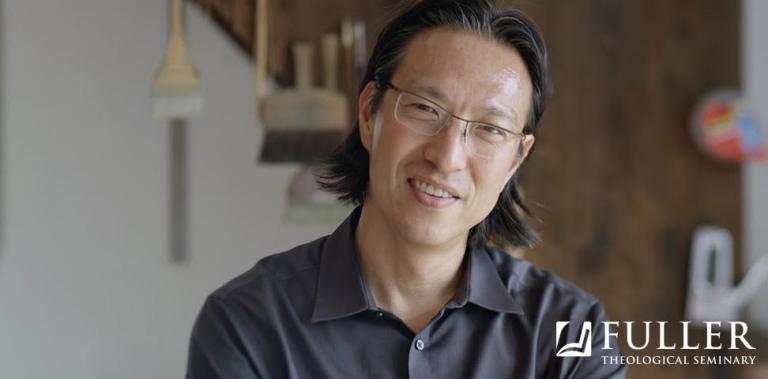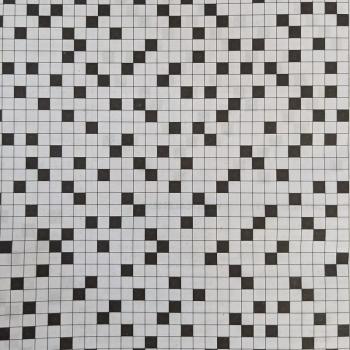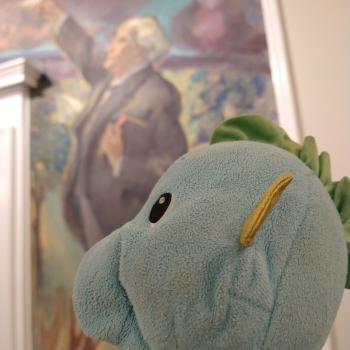Here’s a press release we got today from our friends at Fuller!
Fuller Theological Seminary is pleased to announce that Makoto (“Mako”) Fujimura will join the seminary as director of the Brehm Center for Worship, Theology, and the Arts. Fujimura’s appointment, effective September 1, 2015, follows a yearlong international search process. Master painter Mako Fujimura is a respected leader in the conversation between Christian faith and art. A devoted believer, world-renowned artist, and cultural influence, his leadership has had a profound impact around the world.
Fujimura is the craftsperson of a movement toward renewal called “culture care.” This magnum opus work, his alternative to “culture wars,” is born from the integration ofhis work as an artist and his commitment to his Christian faith. He says it is worship that integrates all of his endeavors, acting as the heartbeat of a legacy that dovetails beautifully with the task before Fuller and with the original vision of the Brehm Center.
“I am filled with gratitude and joy at the rich opportunity I have to welcome Mako as the new director of the Brehm Center for Worship, Theology, and the Arts,” says Fuller President Mark Labberton. “This role ‘shaping culture shapers,’ as Bill and Dee Brehm noted in the early days of their vision, is key for Fuller, and Mako beautifully fulfills our commitment to innovation, collaboration, faithfulness, fruitful risk-taking, and courageous creativity. Bill has always said of the brainstorming process: ‘start with the universe!’ The appointment of Makoto Fujimura to the directorship of the center that bears the Brehm name lives up to that robust challenge.”
“Our relationship with Mako,” says Nate Risdon, Brehm Center program director, “has been one of mutual admiration for nearly 10 years: his lectures, work, and writings have inspired much of our work to date. To have Mako serve as our director brings an amazing convergence that will energize and magnify the movement of ‘culture care.’”
Fujimura will be a “vision director” for Fuller’s Brehm Center, working directly with President Labberton toward a “robust, imaginative experience for Fuller students,” says Fujimura. “My goal for all of us is to experience our God as the author of beauty. My studio is where I experience the presence of my calling the most, and is also where I can offer an integrated experience to others.” Through his studio practice he has mentored many, written several books, and had significant conversation with the church and the world. Fujimura says, “This Fuller appointment is intended to amplify those connections to share with many more.”
CULTURE SHAPER
Fujimura argues for the importance of creating and conserving beauty as antidote to cultural brokenness by asserting a need for cultural “generativity” in public life. Beauty is vital to “soul care,” he believes, offering a vision of the power of artistic generosity to inspire, edify, and heal the church and culture.(See his speech on culture care at the National Press Club.) Fujimura’s book Culture Care is a support volume to the personal gatherings and international speaking engagements in which he shares that vision with like-minded artists, supporters, and creatives. Culture Care is available here http://store.makotofujimura.com/collections/culture-care.
“I hope to be a catalyst for innovation in the future of seminary education,” says Fujimura about his new appointment, “integrating the best of the arts into the church, seeing cities as classrooms for that integration, and helping the church to become the leading practitioner of culture care. My role will be to provide an integration point for worship, theology, and the arts by practice, mentoring, and modeling.”
A Presidential appointee to the National Council on the Arts from 2003 to 2009, Fujimura served as an ambassador for the arts, speaking with decision makers and advising governmental policies. He founded theInternational Arts Movement (IAM) in 1991 on the belief that “culture is not a territory to be won or lost but a resource to steward” from which art, technology, new ideas, and new enterprises arise. As a progenitor of culture care, IAM has for over two decades supported artists, creative catalysts, academics, and professionals from all disciplines by “providing a space in which to gather, learn, collaborate, and create with hopes to foster the renewal of our cultural ecosystem.” IAM-sponsored “Encounter” conferences have featured cultural catalysts such as Elaine Scarry, Dennis Donoghue, Billy Collins, Dana Gioia, Calvin DeWitt, and Miroslav Volf.
ARTIST, SPEAKER, AUTHOR, HONOREE
Fujimura’s work has been exhibited at galleries nationally and abroad, including Dillon Gallery in New York, Sato Museum in Tokyo, the Contemporary Museum of Tokyo, Tokyo National University of Fine Arts Museum, Bentley Gallery in Arizona, Gallery Exit and Oxford House at Taikoo Place in Hong Kong, and Vienna’s Belvedere Museum.
In 2011 he established theFujimura Institute and launched the Four Qu4rtets, a collaboration between himself, painter Bruce Herman, Duke Divinity School theologian/pianist Jeremy Begbie, and Yale University composer Christopher Theofanidis, based on T. S. Eliot’s Four Quartets. The exhibition travelled to universities and institutions around the globe. Qu4rtets became the first contemporary art exhibited at the historic King’s Chapel in Cambridge, UK, on Easter 2015, and is scheduled to be exhibited in Hiroshima for the 70th anniversary of the atomic bombings in November 2015.
Fujimura’s mid-career retrospective catalogue“Golden Sea” was released in 2013 with essays by Daniel Siedell, Roberta Ahmanson, Nicholas Wolterstorff, and others. It includes a full documentary film of the same title by Plywood Pictures. A collective profile of Fujimura’s work and professional vitae can be viewed at his website,www.makotofujimura.com.He is represented globally by Artrue International.
A popular speaker, Mako Fujimura has lectured at numerous conferences, universities, and museums, including the Aspen Institute, Yale and Princeton Universities, Sato Museum, and the Phoenix Art Museum. His bookRefractions: A Journey of Faith, Art and Culture offers a collection of reflections on culture, art, and humanity. His essays have appeared in IMAGE Journal, American Arts Quarterly, TIME and World magazines.
Crossway Publishing commissioned Fujimura in 2009 for The Four Holy Gospels project to commemorate the 400th anniversary of the publishing of the King James Bible. It was the first time that a single artist had been commissioned toilluminate the four Gospels in nearly 500 years. The Gospels were on exhibition at the Museum of Biblical Art in Manhattan in 2011, and in Takashimaya, Nihonbashi, Tokyo thereafter. The Four Holy Gospels consist of five major frontispieces, 89 chapter heading letters, and over 140 pages of hand-illumined pages, all done in the traditionalNihonga style of which Fujimura is an accomplished master.
In 2014, the American Academy of Religion named Fujimura its “2014 Religion and the Arts” award recipient—presented annually to an artist, performer, critic, curator, or scholar who has made a significant contribution to the understanding of the arts and the religions, both for the academy and for a broader public. Bucknell University honored him with the Outstanding Alumni Award in 2012, and he is a recipient of four Doctor of Arts Honorary Degrees—from Belhaven University, Biola University, Cairn University, and Roanoke College.













